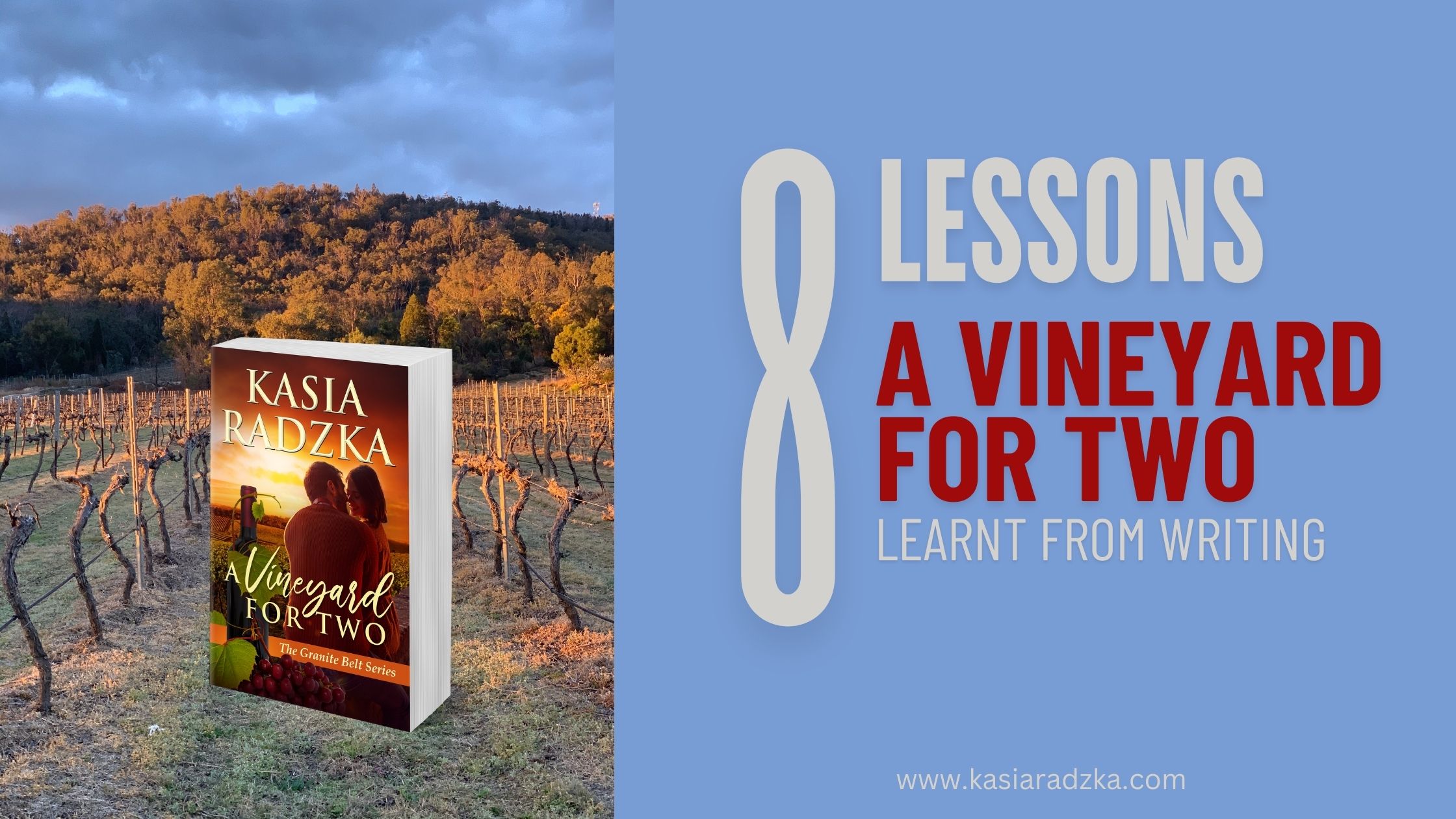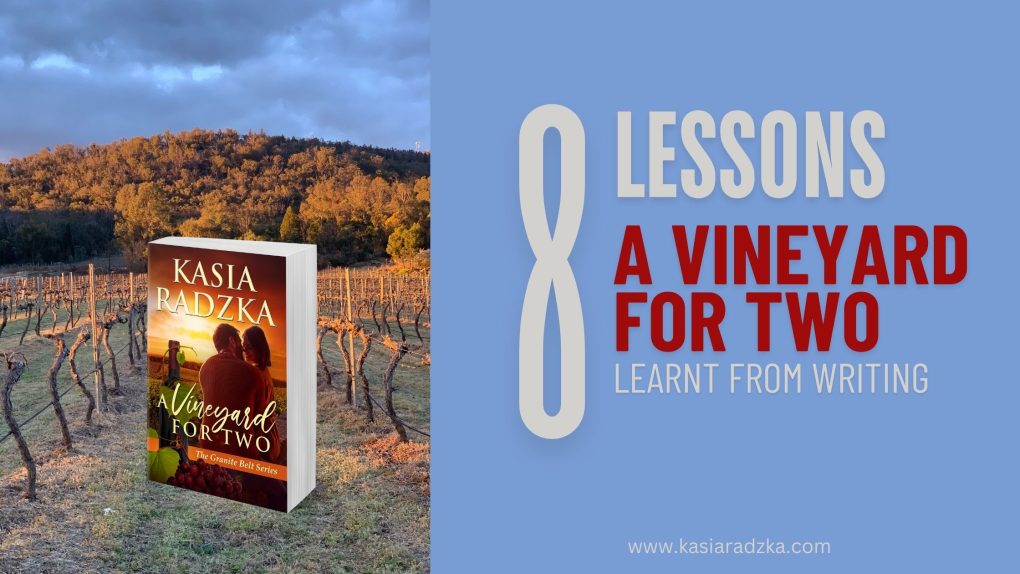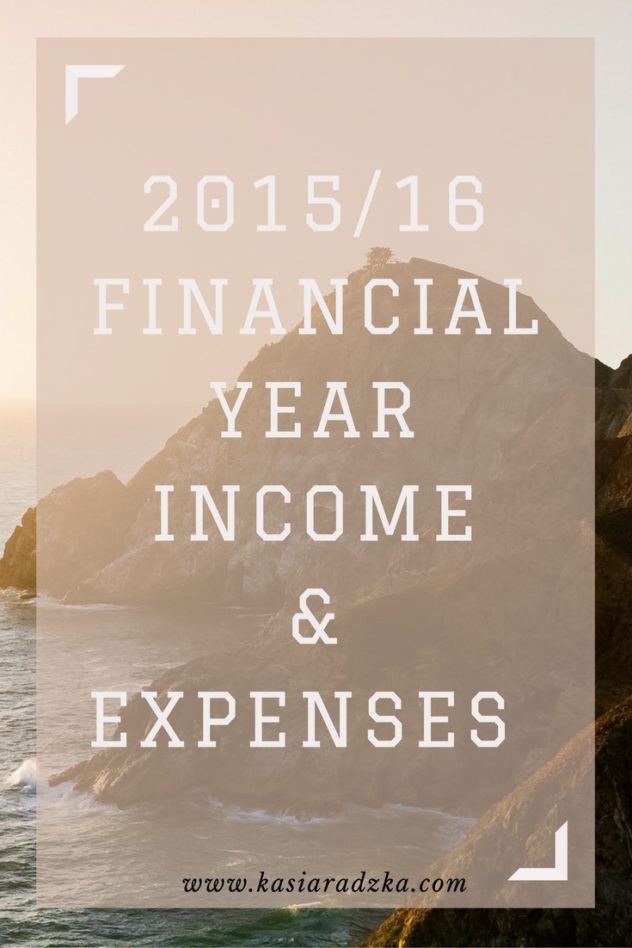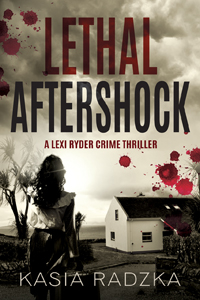
8 Lessons Learnt from Writing ‘A Vineyard for Two’
Writing ‘A Vineyard for Two’ was stepping outside my comfort zone. While I love watching a good romance movie (give those corny and predictable Hallmark ones or Christmas specials any day), a friend and I meet up every month or two and spend Friday night drinking wine and watching the cheesy ones (and trust me, most of them are), but we love it. They are predictable and a good laugh sometimes. If nothing else, we had an opportunity to catch up over a movie. If it’s really bad we just talk over it and use it as background noise.
When I was a teenager, I read all sorts of books. From the Sweet Valley High and Nancy Drew series to Danielle Steele and Stephen King. I was a voracious reader of anything I could get my hands on, but writing romance was never really on the radar.
Who would have thought that 20+ years later, I’d be writing a romance series set in the stunning region of the Granite Belt? A murder mystery, maybe (that’s coming soon too!), but not romance. Yet, here we are.

8 Lessons Learned from Writing ‘A Vineyard for Two’
The setting is a character
If you’re setting your book in a vineyard, it has to play a crucial role.
When I first started writing, I set my stories in faraway places like Europe and America. My own backyard didn’t seem interesting to me. Unfortunately, the faraway places were never going to be as authentic because I wasn’t there to experience the details – taste, smell, sound, feel, and everything in between.
Setting matters. It is a character in your story and it will assist or hinder your characters.
That’s not to say you cannot write about faraway places. Of course you can. We live in the age where information is accessible with the click of a button, you can immerse yourself in books, movies, podcasts, and documentaries to learn about a setting. Often that’s enough or the only option, but when you have an opportunity to explore the place your books are set in, take the opportunity and immerse yourself.
Romance requires a formula to work
Formulas may sound boring but look at any book or movie, any story for that matter in any genre, and if it works, it follows a formula. The trick is to make the formula interesting by adding your fresh spin to it.
A romance is supposed to be predictable in its ending. The two love interests must end up together otherwise it’s not a romance. The originality comes from setting, character, interests, personalities, combination of events, and everything in between. So while yes, your two main love interests need either a ‘happily for now’ or ‘happily ever after’ scenario.
You can have the same formula, even the same place and plot, but give it to two different writers and you’re going to get two completely different stories. Try it with a writer friend. Get a short story prompt, give yourself thirty minutes to write, then swap stories, and see what I mean.
You have to enjoy what you are writing
There’s no point in writing a story if you’re going to hate it. If you’re choosing to write something, write what you love. If you love reading romance, there’s a chance that you’re going to enjoy writing it too. As a reader of the genre, you’ll also understand the necessary elements to make a romance story work.
You need to please yourself first because you are going to be spending a lot of time with your characters, the setting and your story. If you don’t enjoy it, your readers aren’t likely to either.
Research makes writing so much more fun
Researching online is one thing but actually getting out to your setting and experiencing the tastes, smell, touch, sight, can add so much more authenticity – and it gives you an excuse for a getaway!
I can’t remember the last time I had fun writing a novel as I did when writing ‘A Vineyard for Two’. A lot of the fun had to do with being able to visit the setting of the story and enjoy the delights the town had to offer. It certainly helps that the Granite Belt region is one of my favourite places to visit. I love the wine, the country air, and the lovely people.
Talking to people is a great way to research your story. You can find so many interesting tidbits that you might not come across at in books or online. Find every opportunity you can to chat to people, ask questions, and be interested. People love talking about themselves and if they see that you are genuinely interested in what they have to say, they will open up and tell you all sorts of fascinating things – maybe even some juicy details that can be incorporated into your books!



Intertwining plot points makes for a more engaging story
Your story needs the main plot – in romance that’s generally will the two love interests get together in the end. But in between something interesting has to be happening. The characters need to be three dimensional. They have families, pets, friends, jobs, interests, a past. You don’t have to include all the elements but you have to include some.
There’s nothing more dull in a romance story which only centres around two characters. You need a plot to deepen their attraction to each other and keep the reader’s attention. Without it, it’s like cooking up a soup and forgetting to add in the spices – boring and bland.
Nothing can happen at random
Your scenes need to add up to a coherent whole. If something happens at the start it needs to make sense in the end. Often you won’t know what needs to go in the beginning to make sense in the end so you go back to writing your first few chapters, planting seeds for readers to discover.
The start of the book asks questions, as the story progresses, some questions get answered, while new ones creep up, but it all has to make sense and be connected in some way, even if the reader doesn’t see the connection until the very end.
You have to love (or at least like) writing
I enjoy having been written as much as I enjoy writing.
It’s not just about having a finished product but coming up with a story idea and developing the kernel into a gem that ends up in a 60,000-80,000 word book that someone will read and enjoy.
I don’t mind staring at the blank page and thinking up troubles for my characters. I like the beginning of the story as much as I love the ending – it’s the middle that gets me. However, if I know where I’m going and there is action on the page, then even the middle can be fun.
If you don’t love writing itself, why are you doing it in the first place? There are much easier and more lucrative professions out there for you.
A lot of writers are going to dabble with AI, but please don’t let AI write your books. Use it as a tool to improve as a writer, to get ideas, to brainstorm, or boost your marketing efforts, but remember to always write your own book. You are a writer after all, aren’t you?
Not everyone is going to love what you write
I relearn this with every book I write. Just because you love it doesn’t mean all your family, friends, or fans are going to love it. In fact, it’s likely that most of your family and friends aren’t even going to give your book a second glance.
Chances are that there will be a lot of people who don’t like what you’ve written. That’s their problem not yours (provided you’ve done everything right and produced a book that has a great cover, good editing, and a compelling story).
You cannot please everybody and you shouldn’t have to.
Please yourself, and then aim to please your target audience (no, your target audience is not everyone).
I write what I love to write and read. However, I still think about my target audience. When it comes to my romance books, they’re female readers between the ages of 25 – 65, who enjoy a good romance with some plot, mild steam, and a touch of suspense. Does that mean readers outside these brackets won’t read my books? Of course not, but if I was doing paid advertising, this is who I would aim it at.
Am I guaranteed this group will love what I’ve written? Let’s not be ridiculous. Of course not. There will always be a group who are not satisfied or the book didn’t hit the mark for. But you don’t dwell on it. You go work on the next book and make improvements wherever you can.
As writers, we are always learning something new. It’s one of the things I love about being an author. Each book I write and every story I pen, teaches me something new and makes me realise there is still so much I have to learn, and so much more I want to discover.





